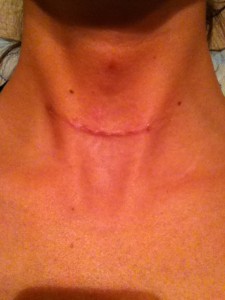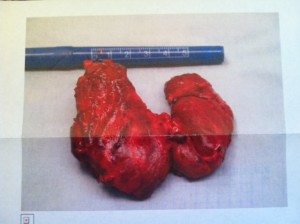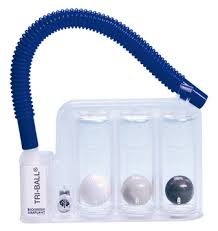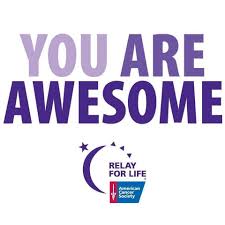Hello, my name is Shelby and I am a 22 year old female from Oregon.
I was diagnosed with Grave’s Disease (hyperthyroidism) when I was 14 years old. Oddly enough, it was first noticed during my sports physical by our family chiropractor that first noticed something was off (except for my sister, she kept saying that something was wrong and no one believed her – always listen to your sister) – my resting heart rate was 114 beats per minute, as well as some other indicators. He referred me to see a pediatric general practitioner, who worked with me and a pediatric endocrinologist and were able to get me mostly in-range with monthly blood draws and a lot of medication adjustments (I was on methimazole and beta-blockers). My weight fluctuated greatly (never easy for a teenage girl), my hair was falling out rapidly (even my eyebrows and eyelashes), my thyroid grew into a small goiter, and I was ALWAYS tired. By my senior year I had lost about half of my hair (which I know because my mom is a hair stylist and couldn’t believe what was happening) and I finally cut it off in a short pixie cut, because I was tired of having so many fuzzy little layers at it grew back in.
College was when I really started having problems with my thyroid. The stress of school, living on my own, and learning how/what to eat again (I was diagnosed with Celiac Disease the spring of my senior year of high school) created a situation to turn my hormones onto overdrive. By spring term of my freshman year my thyroid was so enlarged (defiant goiter) that I was hoarse and coughing all of the time. My endocrinologist (I was on my second one by then) was changing my dose every month and didn’t believe I was even taking my medicine, because my levels would fluctuate so rapidly and severely.
I was still against killing my thyroid at this point because I wasn’t ready to give up the fight. Plus, my doctor was really fond of using radioactive iodine and I just didn’t feel like that was the right decision for me, especially because I was so young and couldn’t find any case studies on anyone else my age having it done. So I kept trying to suppress it with anti-thyroid medicine and keep going with my life – I also changed doctors again. My new doctor was onboard for not killing my thyroid and trying to work with me.
All and all I don’t think I would have made it through college without my amazing boyfriend to keep me grounded throughout all of my mood swings, tired phases, memory loss, and all of the usual trials and tribul ations of normal college life (and of course my family’s complete support through everything). However, by my senior year of college I was just done fighting my thyroid: I could no longer sleep on my back because it would choke me, I couldn’t eat without something to drink to get it down, the heart problems that it caused where as bad as the thyroid ones (my regular resting heartrate was 110bpm, and I was told I had to stop exercising when it went over 200bpm), I choked on my food constantly and wouldn’t eat if I was home alone, it had become all-consuming of my life. Plus, all of the side effects of Grave’s disease itself, I wanted it out, and everyone around me was onboard for the decision…except my thyroid (who was named Theodore by my sister when I was in high school, bit of a standing joke with the family). Because it is considered an “elective procedure” I needed to be in range for the surgery. So I waited, and waited, and waited. After graduation my doctor asked me if the stress level of my life would decrease now that I finished school (I wish!), I replied that my dad had just gotten out of the hospital with 11 broken ribs and a punctured lung and my boyfriend was about to deploy (so much for stress free).
ations of normal college life (and of course my family’s complete support through everything). However, by my senior year of college I was just done fighting my thyroid: I could no longer sleep on my back because it would choke me, I couldn’t eat without something to drink to get it down, the heart problems that it caused where as bad as the thyroid ones (my regular resting heartrate was 110bpm, and I was told I had to stop exercising when it went over 200bpm), I choked on my food constantly and wouldn’t eat if I was home alone, it had become all-consuming of my life. Plus, all of the side effects of Grave’s disease itself, I wanted it out, and everyone around me was onboard for the decision…except my thyroid (who was named Theodore by my sister when I was in high school, bit of a standing joke with the family). Because it is considered an “elective procedure” I needed to be in range for the surgery. So I waited, and waited, and waited. After graduation my doctor asked me if the stress level of my life would decrease now that I finished school (I wish!), I replied that my dad had just gotten out of the hospital with 11 broken ribs and a punctured lung and my boyfriend was about to deploy (so much for stress free).
Finally, the beginning of 2015 had a change of fate for me and I was approved for the surgery. I was referred for a wonderful surgeon who I had complete trust in and had a total thyroidectomy on February 11th. The surgery was actually faster than they had anticipated and only took 2 hours, although my thyroid was bigger than they had believed and I had a much more extensive blood supply than they thought (even after 10 days of iodine). My thyroid ended up being approximately 9cm wide, by 7cm tall – much bigger than it should have ever been, and was biopsied and came back clean. I stayed in the hospital overnight for observation and was released the next day with synthroid, mild pain killers (that I only needed for 3 days), and nausea medicine (that I never used). And I finally didn’t have to be on beta-blockers for my heart. After a long weekend of lying on the couch with an ice pack on my neck, and eating soft foods I was feeling good again.

EWWWWWWWWWWWWWWWWWWWWWWWW NICE
After a week I was driving again and doing stuff around the house. After about 1.5 weeks I went back to work, and at 2 weeks I was on a plane flying to my boyfriend’s homecoming from deployment – this was first approved by my surgeon with instructions. It will be 3 weeks post-surgery tomorrow, and my incision is already scarred over and healing great and I feel wonderful. The thing that still feels strange to me is swallowing, because I hadn’t realized that I was swallowing my food multiple times to get it down, and now I don’t have to. And I was used to feeling my goiter and all the muscles bob around when I swallowed or talked and now it feels like something is missing. I am sure that I will get used to that soon! I know that I am in the minority of being young for thyroid problems, but if anyone else out there is in a similar situation, you are not alone, I did it and am feeling great.
*The pictures are of my removed thyroid (which I requested to see because I was curious), and of my incision scar 3 weeks after the total thyroidectomy
Sparky here (the operator of LWaT). I asked Shelby the following question: “do you think you would have done this sooner, knowing what you know now?”
Her reply:
Knowing what I know now I would have probably had it removed a few years ago. The problem was that I had a love/hate relationship with my thyroid. It would go out of control (which we called my “roid rage” – sometimes you just have to make bad situations into a joke) and it would grow and cause problems, but then when the stress calmed down my thyroid would shrink again and I would want to give it another chance to work like it was supposed to. Because I was so young when it was diagnose my doctors always thought that it would go into remission and wanted to give it time. Really though, when it started interfering with my swallowing is when I should have insisted on the surgery.







